John Dredge and Richard Cray on making Series 6 of their hit sketch show podcast
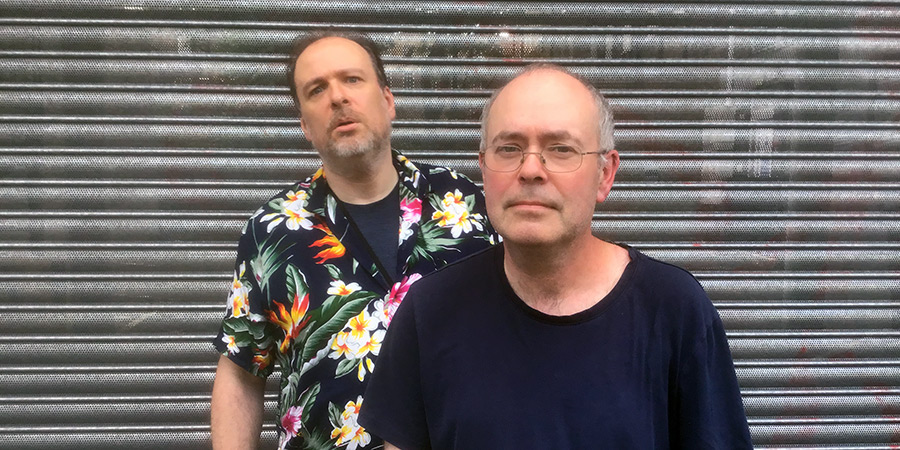
Series 6 of critically acclaimed sketch format The John Dredge Nothing To Do With Anything Show is now available to listen to in full, wherever you get your podcasts from. As the format also now begins a run on Resonance FM, we speak to John Dredge and producer Richard Cray to find out more about the episodes.
For those that haven't encountered the show before, can you explain the format?
John: No.
Richard: I think you should expand on that.
John: The whole thing is kind of inexplicable.
Richard: It could be a magazine show from a parallel universe rooted somewhere between 1965 and 1985, hosted by a man who is slightly aghast at the features and guests that are paraded before him. Or it could be a wacky and zany sketch show where the next item often isn't what you expect it to be. Or it could be an irreverent collection of absurd retro pop culture references guaranteed to confuse and confound anyone under the age of 30.
John: If this were Call My Bluff, I think I'd plump for the first definition.
Richard: Frankly, it could be all three. Or none. It could be a haddock called Gerald, I just don't know.
John: Let's settle on "a sketch show that is also a sort of spoof magazine show, with character monologues, song parodies, daft jingles and lots of mucking about in hyperspace", that sort of thing. Without the hyperspace.
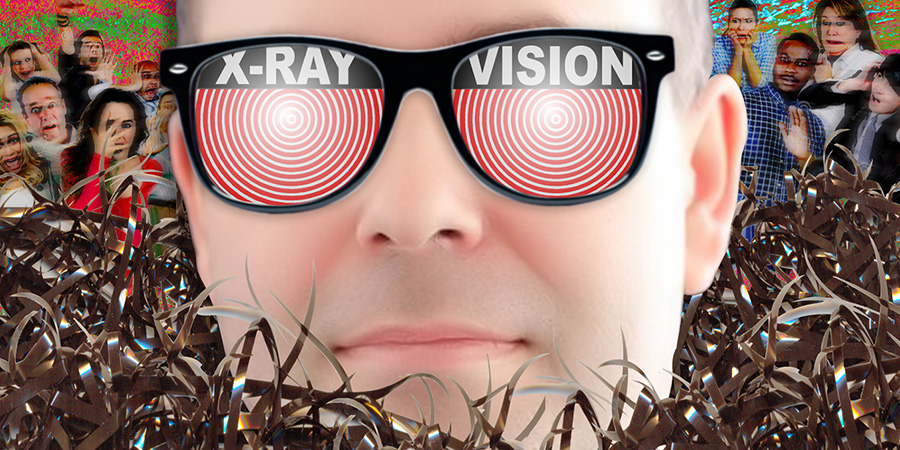
There was a 1483 day gap between Series 5 and Series 6. Why the wait?
John: I was on holiday. I had 1483 days' leave owing from work.
Richard: The decision to do another series is usually made once we've sifted through all the feedback to the previous series, which can take a while. Then other bits of life get in the way: this time, in my case, it was two new jobs, a bereavement and a cancerous lesion - not at all funny, but equally worthy of use in mitigation. Clearly, in John's case, it was almost entirely down to a hideously expensive cruise into the heart of the Bermuda Triangle.
John: It also takes a long time to get the scripts right. We try to increase the silliness series upon series and not repeat ourselves.
Richard: Yes, and we also try not to repeat ourselves. We wrote more stand-alone pieces this time, rather than whole episodes or chunks of episodes, considering linking devices further down the line, and threw out much more material than we would have done normally. I think we chucked out a good quarter of the stuff we finished, on top of the usual stuff we never end up finishing for one reason or another.
John: Each series also tends to be longer than the one that preceded it, so by default it usually requires an expanded pool of performers, and scheduling the whole shebang takes some organising in itself.
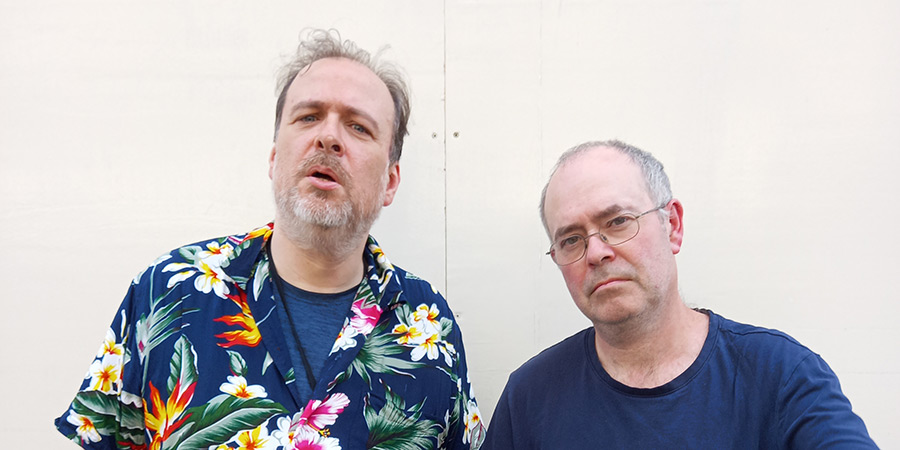
Richard: Covid played a part too, obviously. In many respects, it was extremely fortuitous to have completed Series 5 a few weeks ahead of lockdown in 2020, and we pretty much started writing this series during that summer. At that time, we didn't know how long it would be before three or four of us would be able to wave at each other from opposite ends of the Bakerloo line, let alone sit in the same room, so we set no time constraints.
John: If we just knocked the whole thing out in a few weeks, it wouldn't be much cop anyway.
Richard: We also recorded in a studio this time, purely because our previous recording location, my living room, became much noisier post-Covid. Or, to be more precise, the world outside my living room became noisier. I also haven't cleaned the place in months, and John's not that keen on dust. But being on the clock in a proper studio brought with it a whole new set of challenges.
When you're recording in an environment that is acoustically sound, you notice things that you might not in a room where there is natural air and reverberation. We discovered that the rooms we recorded in were not quite as soundproof as we would have hoped either, and microphones and cables that seemed to be OK on the day were found to have had faults that affected some recordings, which needed to be redone. That said, it was great experience to finally make a series in a studio, and I think the resulting audio is far better than we would have been able to achieve anywhere else. I don't think I'll miss the kidney I harvested to pay the invoice either.
John: Essentially, we try to make the show as good as we possibly can. If it's worth doing, it's worth doing well. Also, we are mad.
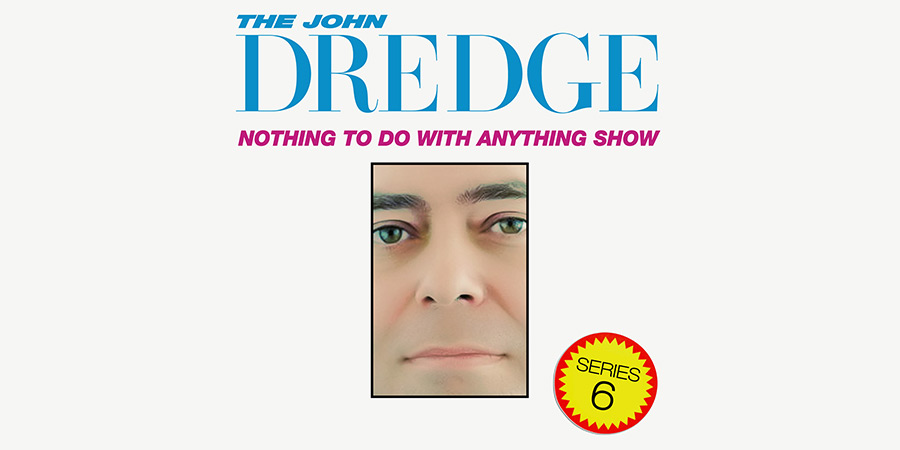
Do you need to have heard the first series to understand the new episodes, or can new listeners just jump straight into Series 6?
John: There's lots of detail, which hopefully rewards repeated listening, but it can be just as enjoyable an experience if you jump in and go with it, I think.
Richard: While there are running gags and slight story arcs to some characters, and the odd call-back, I don't think they spoil the overall enjoyment - that's certainly the feedback I've had from people who've started with the later series. I guess what I would recommend to the uninitiated is, wherever you start, start at the first episode of a series. There's always a degree of a fresh start with each new series anyway - a different theme, a new voice or two.
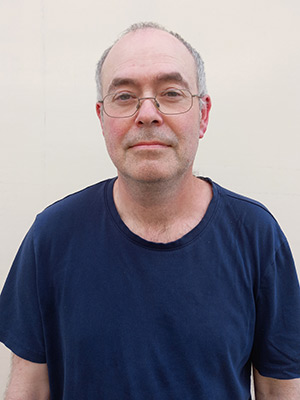
About those voices: You've an expanded cast this time. Tell us more about the team.
John: We've used Greg Haiste since day one all those years ago, when the world was young, and he didn't have a moustache. His sense of humour is much the same as mine and Richard's. In Max Dowler, we've finally found our Wallace Greenslade, who manages to sound very authoritative while reading out some utterly ridiculous things.
Richard: He's also a great impressionist, as is Anil Desai, who had previously been a guest performer in the Harold Baim 'Birmingham' parody in Series 4.
John: Katy Slater always sounds just on the right side of madness to me, and James Shakeshaft is always good for a slightly weird laugh or ad lib, so he fits right in. I met Paul Creasy when we both attended Gemma Arrowsmith's sketch course some years ago - he seems to be able to do any voice or character we throw at him, it's remarkable.
Miles Eady is, to my mind, responsible for the funniest performance of the series during the spoof of the 1980s pop series Razzmatazz, when he is interviewing Richard playing Barry Gibb, falsetto and everything. I had to leave the live room when they were recording that bit.
Victor Hampson, who directed the short film I did last year (Splorry) was able to bring some fairly challenging pieces to life. And I brought in Victoria Dry from another short film I worked on (Sheist, directed by Zoe Browne).
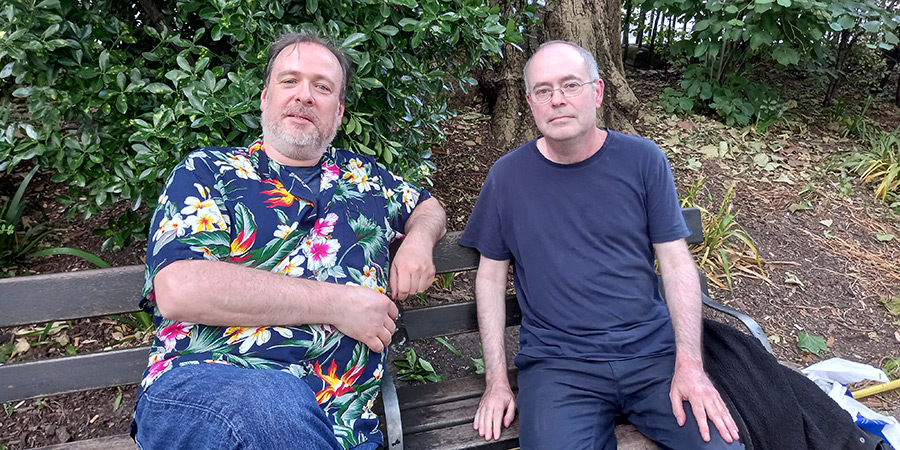
Richard: It was great to get Brian Luff involved, as he was the person that brought John and I together in the first place. Georgina Waring appears briefly, primarily because I thought she had an almost identical voice to one of the real-life individuals from the Blitz club documentary we parodied. She comes from serious acting stock - not least her aunt, Josephine Tewson, who was Ronnie Barker's preferred leading lady. And Patrick O'Halloran saved me the indignity of doing a bad Irish accent.
During production, we were party to an email thread agonising over getting the sound of Sooty's friend Sweep just right. That squeaky effect probably ended up only being two seconds of the 10800+ recorded. There's a lot of focus placed on making sure everything is exactly right?
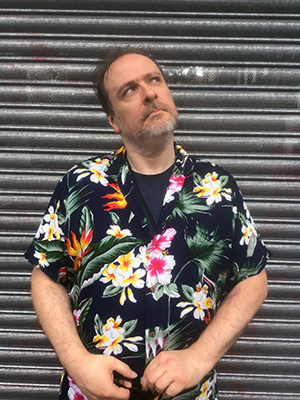
Richard: On reflection, I was probably 100 times more concerned about accurately replicating the voice of Sweep than I ever was about my O Level grades. This will come as no surprise to any of my teachers who are still alive and even less of a surprise to those who've gone to the great staff room in the sky.
We pretty much exhausted our combined pool of friends in music and puppetry in our pursuit of excellence in that respect. We knew it was originally done with a sax reed of some sort, and how the effect came to have the inflexion of human speech, but not what had to be done to the reed - or reeds - to get the desired effect. I even went into Hobgoblin in Rathbone Place on the off-chance one of the staff might have known, but they, along with several other people we consulted, thought it was a swazzle, the device used for the voice of Mr Punch and responsible for the deaths from choking of hundreds of promising voice actors every year.
Brian fired off a DM to a friend of his who was a cameraman on The Sooty Show in the Matthew Corbett era, but he remained tight-lipped - although I later found a behind-the-scenes video he'd shot 30 years ago on YouTube, and there is a very brief section with Matthew blowing into something that doesn't look like any sax reed I've ever seen, so I began to think it might have been custom-made. Or maybe he's just blowing into something random and they dubbed on the sound to further obfuscate the truth and further the conspiracy of silence for another generation of documentary makers.
Seriously, it's like there's the recipe to Coke, the secret blend of 11 herbs and spices in a KFC, what's in Area 51, and then, way above them all and the identity of JFK's assassin, there's how to get the authentic sound of this stupid grey puppet dog who likes drenching strangers with a fireman's hose. In the end, I used a plastic straw - and it took bloody ages to find one of those as well.
John: Richard is a real stickler for getting the details right, but things like that make the show stand out, in my view.
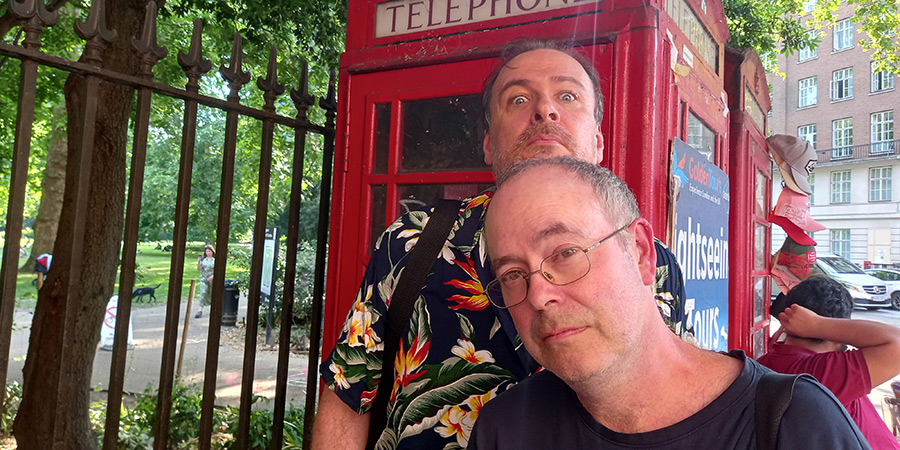
Any particular highlights you think listeners should be listening out for this time?
John: Amateur hotel critic Peter Pilbeam's latest review is expertly produced, thanks to Richard's superb use of backing music and effects. I also really loved the aforementioned Razzmatazz parody - I just had to get that sketch out of my system and it's turned out really well.
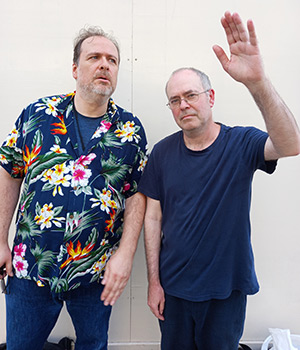
Richard: Yeah, the Razzmatazz parody really has that sense of manic urgency, with an unnerving volume of background noise. I watched a couple of episodes for research, having not watched it since the 1980s, and it's like televisual hyperglycaemia. We certainly ventured out of our comfort level on a couple of sketches too - you know, can we make these ideas work? Now the whole thing's complete and out there, in every sense, I think I can say, yes, they did work, by and large. The Spandau Ballet jokes are becoming something of a tradition as well.
John: There's also a chat show hosted by a Hoover, which couldn't have been done in any other medium.
Is there anything you've ever written that hasn't been able to be successfully turned into an audio sketch?
John: I wanted to have Tony Hancock appear as Doctor Who. 'Stone me what a regeneration.' That sort of thing. But we couldn't come up with a good enough ending.
Richard: There was a sketch I wrote for TV years ago about a couple who'd had the monolith from 2001: A Space Odyssey installed in their living room, and John did attempt to turn that into an audio sketch, but in the end I felt it didn't have enough going for it without the visual element and we agreed to abandon it. In most cases, we acknowledge the parameters we need to work within for something to succeed within the audio realm early on, and focus on making each piece as funny as possible, while trying to make a whole episode sound cohesive.
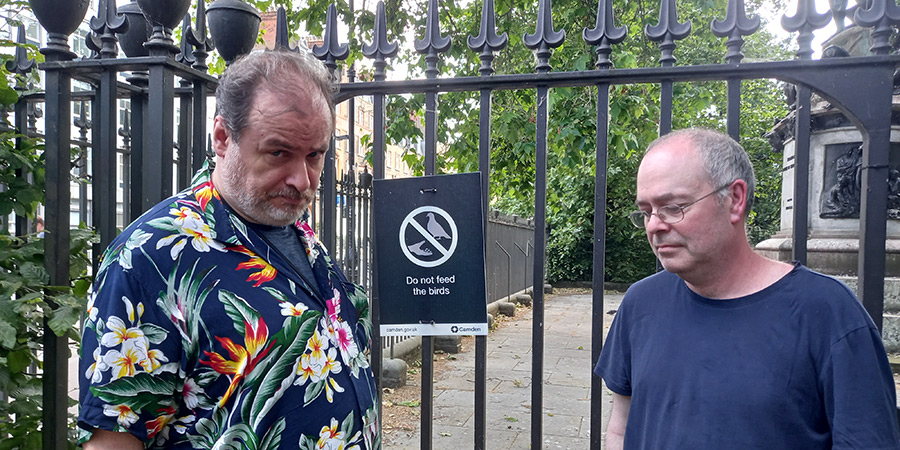
People can now also hear the show on Resonance FM on Mondays at 3pm, which is nice. Radio 4 sometimes airs podcasts. Presumably you'd be interested in being repeated on the BBC too?
John: Well, that would be great, of course. What I like about the show is that it is exactly the series we want to make. We haven't compromised our vision in any way.
Richard: We've always been interested in talking to the BBC. We're interested in talking to anyone, frankly, but as the BBC has something of a monopoly on radio comedy, that's where we must focus our efforts. One of the reasons we've persevered with the show and not tried another approach is that with every passing series we've received feedback from people - some of whom work for the BBC, either in production or on air roles - saying "this sounds like something the BBC should be doing", and we could only improve further with their guidance, expertise and resources.
The reaction to this latest series has been really great. You must be blushing at some of the review write-ups?
Richard: No, that's just my body's natural reaction to the hot weather. I'm a big fella and I haven't taken on any fluids in the last hour. But yes, the reaction seems to have been genuinely positive, and any praise, whether it comes from a reviewer or someone more established within the comedy sector or broadcasting industry, or a listener, makes the effort so much more worthwhile.
John: It's been very encouraging.
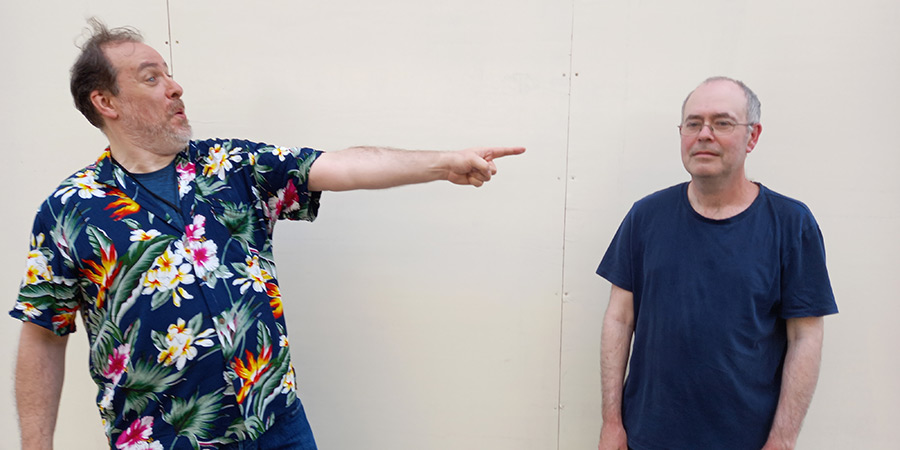
So, any thoughts on a Series 7 then? By our calculations, you could be ready as soon as 2028?
John: We've had demands for more. So we've cleared the first hurdle at least.
Richard: It also depends whether anyone comes running towards us brandishing a wad of mazoomah to make more of the same. If we can earn as much as one of Joe Rogan's toenails by doing this sort of thing for a living, that would be a start. But time, inspiration, availability of resources both human and physical, they may also play a part. After six series of this idiocy, it might also be nice to try something else by way of a palate cleanser in the interim too.
John: By 2028, we'll probably be travelling around in flying cars. Which I must say I'm very much looking forward to.
The John Dredge Nothing To Do With Anything Show is available on all major podcast platforms, or you can Listen online
You can also hear the show on Resonance FM on Mondays at 3pm from 1st July, repeated on Thursdays at 4:30pm. Episodes can also be streamed after transmission on Mixcloud - search 'John Dredge' to find whatever's available.
Help us publish more great content by becoming a BCG Supporter. You'll be backing our mission to champion, celebrate and promote British comedy in all its forms: past, present and future.
We understand times are tough, but if you believe in the power of laughter we'd be honoured to have you join us. Advertising doesn't cover our costs, so every single donation matters and is put to good use. Thank you.
Love comedy? Find out more